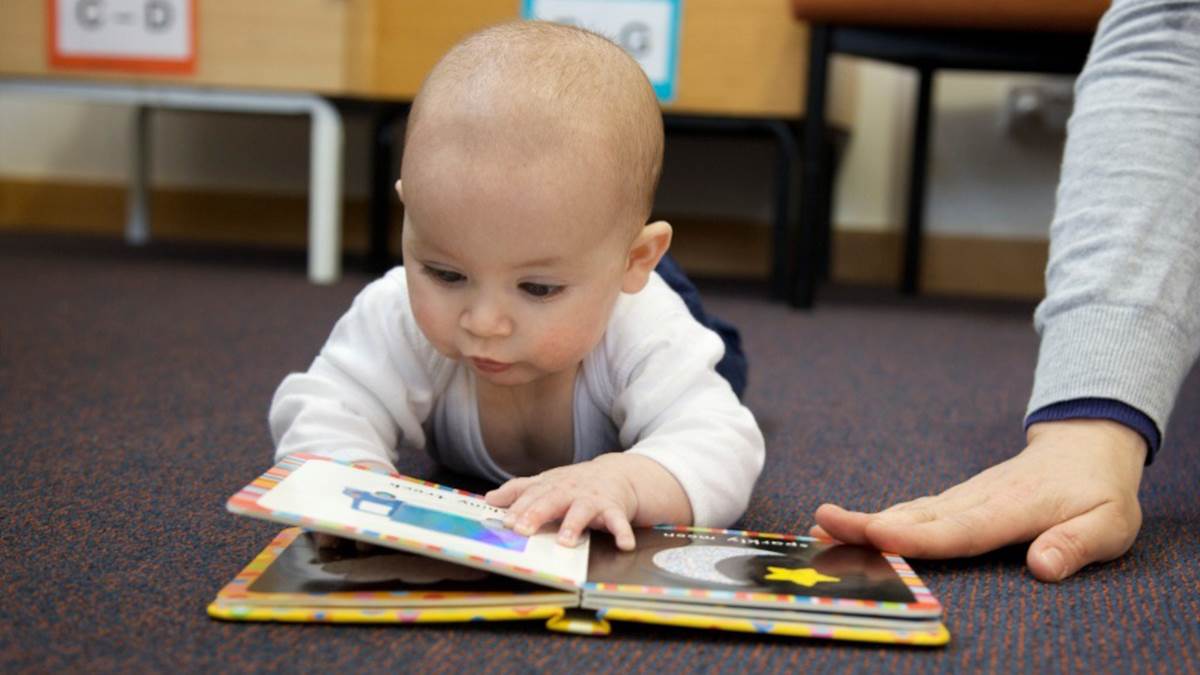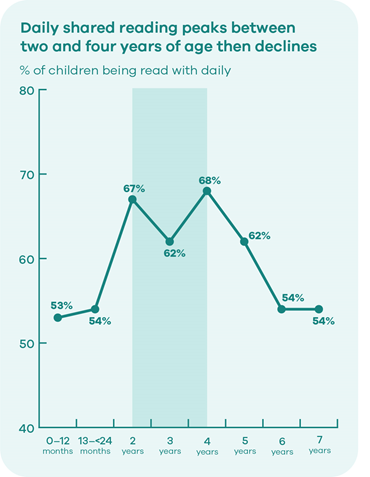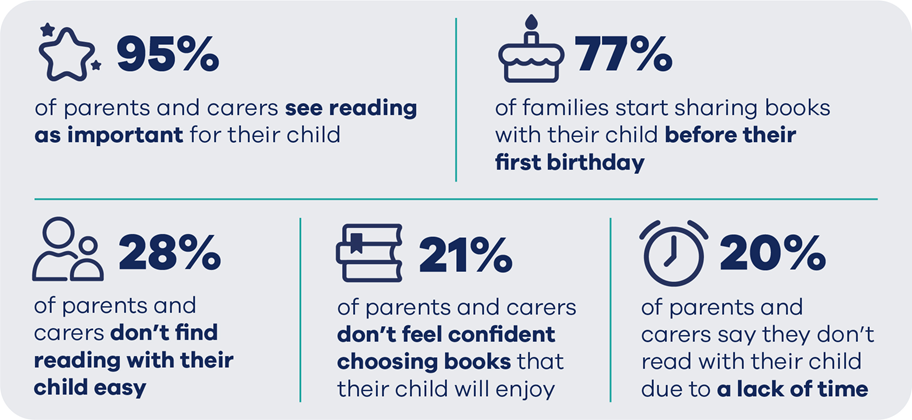Children's reading habits in the early years
Research with families from low-income backgrounds in the UK

Research shows that reading in the early years brings profound and wide-ranging benefits to children that can have a lifelong positive impact. At a time when the disadvantage gap is growing, understanding the reading habits and behaviours of children from low-income families is essential for anyone who supports children in their early years and wishes to give them the best start in life.
What does this research tell us?
Parents and carers see reading with their children as important and whilst the majority are sharing stories with their children in the first year of life, almost a quarter of families are not. Frequent shared reading reaches its peak when children are aged between two and four and then starts to drop significantly, continuing to decline throughout childhood. This means many children are missing out on regular shared reading opportunities and exposure to books and stories and, therefore, the chance to enjoy the profound and wide- ranging benefits that reading brings.
A lack of time due to the pressures of work or family life and a lack of confidence in choosing books their children will enjoy are among the main barriers that prevent families from reading together. Furthermore, over a quarter of parents and carers do not find it easy to read with their young children.
These are complex issues that require a behaviour change led approach to support families to read more with their children, and to continue shared reading throughout and beyond the early years. Making sharing stories with children easy and enjoyable for families is therefore key.

Why is reading important for children?
At a time when families are facing multiple and competing pressures on their time and finances, why is it so important to invest in supporting families to share books and stories?
Reading and sharing stories is proven to bring children profound and wide-ranging benefits that can affect their health, wellbeing, progress at school and their creativity. Shared reading brings immediate benefits to families too. It supports bonding between children and their parents, carers or other family members, boosts parental positivity and improves children’s sleep.
Children’s brains experience the most growth in their first five years. In these early years, stimulation from books, and using books, stories and rhymes as a focus for playing, talking, and singing enhances the cognitive, physical, social, and emotional growth and development of children that extends far beyond childhood.
We know that if children experience early shared reading they are more likely to continue to read as they grow up. Reading for pleasure in the early years has four times more powerful impact on a child’s progress across the curriculum at age 16 than parental education or socioeconomic status.
Children from low-income backgrounds stand to benefit even more from the immediate and longer-term benefits of early shared reading. Evidence shows that children from disadvantaged backgrounds who achieve highly at the end of primary school are twice as likely to have been read to at home in their early years, compared to their peers. In the long-term, reading has the potential to transform children’s future life chances. A child growing up in poverty who is read to at age five has a significantly higher chance of economic success in their 30s than their peers who were not read to.
It is essential that children from low income and vulnerable family backgrounds do not miss out on the transformative benefits of early shared reading. That’s why at BookTrust, we provide extra support to these families; ensuring our books, resources and support reach and engage children and families who need us the most.

